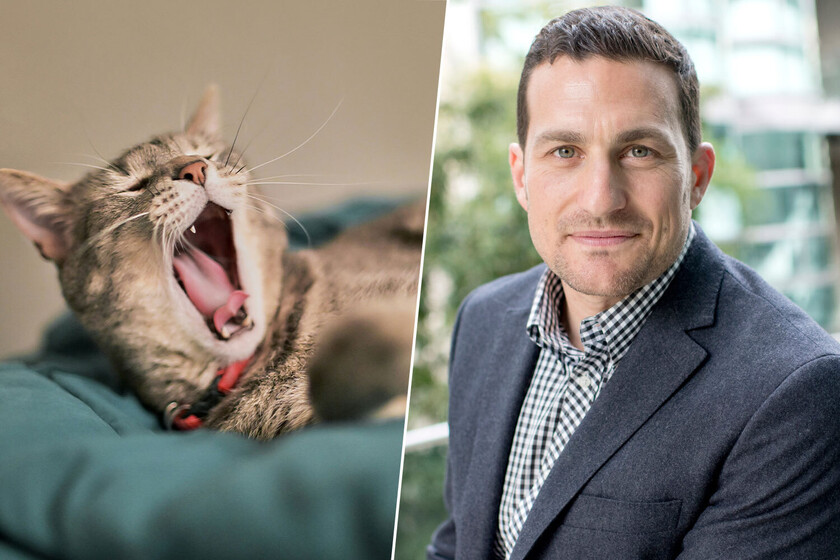

Productivity is not just a matter of working more, but of working better. And to prepare your brain with an adequate awakening to have a productive day, nothing better than some healthy habits with which to start the day.
As revealed in several episodes of his podcast Andrew Huberman, neuroscientist at Stanford University and author of ‘Protocols: An Operating Manual for the Human Body‘, integrating the ten habits that we tell you below into your daily routine will improve your physical and mental health, improving productivity throughout the day.
1. Get up early
Although it is something that will be highly conditioned by each person’s circadian rhythms, and chronotypes prevent them from getting out of bed early, the neuroscientist recommends waking up early. Ideally between five and six in the morning. You will see as you progress through the text that there is no shortage of reasons.
According to Andrew Huberman, waking up early synchronizes circadian rhythms with sunlight, which helps improve sleep hygiene, optimize concentration, and keep energy levels high for the rest of the day.

2. Go out and sunbathe
For Huberman, exposure to natural light is key when waking up and his recommendation is to expose yourself to direct sunlight during those first hours when exposure to ultraviolet light is not as intense.
This exposure activates the brain’s alert processes and regulates cortisol levels in a controlled manner, helping to maintain stable energy throughout the day. In addition, they also help maintain healthy levels of vitamin D.
3. Drink water to stay hydrated
The neuroscientist remembers that, even if you have been sleeping for the last few hours, the body has continued to function, so it is necessary to replenish hydration levels as soon as you wake up to recover cognitive function, activate the metabolism and optimize the digestion process for breakfast. .
4. Set aside a few minutes to meditate
Another habit that the neuroscientist recommends doing before starting the day is to dedicate a few minutes to meditation. According to Huberman, spending at least 10 minutes helps reduce stress and improves concentration for the rest of the day.
The controlled breathing exercises performed during meditation help regulate the nervous system, heart rate, and autonomic nervous system, preparing the body to handle the demands of the day.
5. Stretching does not count as stretching
Waking up in the morning doesn’t count as stretching, so Andrew Huberman recommends doing some stretches before starting your day. Scientific studies from the University of Arkansas showed that about 30 seconds per muscle area is more than enough to improve your flexibility.
In addition, these stretches help release muscle tension accumulated during the night, improve blood circulation and increase the range of mobility, allowing you to face the day’s activities with less risk of injury or overload.

6. Do sports
Physical activity is a central element among the healthy habits that Huberman recommends. Exercise of any kind, whether running, weight lifting, or high-intensity training, improves cardiovascular health, activates the metabolism, and raises dopamine levels.
Something as simple and affordable for anyone as walking for half an hour daily has proven to have a great positive impact on physical and mental health because it generates a feeling of well-being and improves motivation.
7. A proper breakfast and warning with coffee
The first meal of the day, according to Huberman, should provide the nutrients and energy that the body and mind need to function in optimal conditions. The neuroscientist assures that this meal should be rich in proteins, such as eggs, accompanied by healthy fats, such as avocados, and complex carbohydrates in the form of whole-grain toast. The data reveal that in Spain we fail the breakfast subject.
However, the expert adds some warnings: he recommends not having breakfast immediately after getting up, but rather waiting between 60 and 90 minutes, especially if that breakfast is going to include caffeine. This delay allows cortisol to peak naturally and gives the body time to eliminate adenosine, a neurotransmitter that promotes sleepiness.
8. A “refreshing” shower
As if getting out of the cozy warmth of bed wasn’t enough to wake you up, Andrew Huberman recommends in his podcast using cold showers and even ice baths to improve circulation, increase mental alertness levels, and reduce inflammation. and activate the metabolism.
Beyond the physical benefits of contrast baths that science has already studied, the expert attributes positive effects on mental resilience to this practice. The scientist recommends starting with brief exposures to cold water of between 15 and 20 seconds, to gradually extend the exposure.
9. Write a diary
Once the food and body needs have been met, it is time to prepare to start the day. The expert recommends starting by structuring your thoughts to prioritize objectives. To do this, his recommendation is to write a diary.
Huberman recommends spending no more than five minutes in the morning to establish the day’s goals, about 20 minutes at night to write about personal experiences, personal challenges and learnings that may have happened to you during the day. The expert assures that writing a diary not only helps to structure thoughts, but also facilitates personal monitoring of progress and areas for improvement.
10. Order your daily priorities
The last daily habit that Andrew Huberman points out highlights the importance of setting clear goals and priorities at the beginning of the day. Setting daily goals provides focus and motivation, and reviewing them at the end of the day encourages a cycle of continuous improvement.
There are many techniques to learn to differentiate what is urgent from what is important, but the neuroscientist’s intention is to establish a monitoring pattern in which the progress made can be visually appreciated, thus managing to encourage personal motivation.
In Xataka | The simple habit that has a surprising impact on productivity: organizing your workspace before you start
Image | Wikimedia Commons (Jamesbrianbounds), Unsplash (Girl with red hat)
